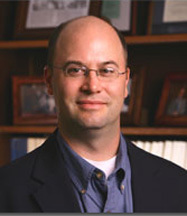
For Richard W. Garnett, John Cardinal OHara, C.S.C., Associate Professor of Law in the Notre Dame Law School, the Supreme Courts last-minute stay of execution for Mississippi death row inmate Earl Wesley Barry indicates a heartening self-restraint.
Executions in the United States are coming to a halt,Garnett said.Last month was the first month in several years without a single execution.In effect, we are now in a capital-punishment moratorium, and, indeed, many prominent lawyers and commentators are urging a more explicit adoption of such a moratorium.
According to Garnett, it is unclear how long the moratorium will last.
The Supreme Court is going to consider this term a challenge to a particular method of lethal-injection,he said.Even if the court concludes that this method is unconstitutional, such a ruling will not invalidate the death penalty across the board.Still, it could have a powerful effect on the public debate, on legislatures, on prosecutors, and on jurors.
Thirty-five years ago, the justices of the court overreached, and struck down every death penalty statute in the country.No doubt, some of them expected that their decision simply represented moral progress, and that the public would be convinced by their arguments and reject capital punishment.Instead, the legislatures of most states quickly reenacted new death penalty statutes and, a few years later, the court agreed that these new laws satisfied the Constitution’s requirements.
Garnett observed that the court has recently paid close attention to the question of capital punishment.
In a string of cases, the justices have limited the death penalty’s use, and also indicated an increased willingness to hear inmatesclaims of trial error and innocence,he said.What is worth noting, though, is that the court is proceeding carefully, and incrementally.Chastened, perhaps, by the reaction to its arrogant decision in Roe v. Wade, in which the court assumed for itself the authority to resolve a difficult moral question on which reasonable people can and do disagree, it appears that, this time around, with this particular vexing issue, the court is choosing to engage in dialogue with the political branches of government, and with public opinion. Even those who oppose, on moral grounds, the use of capital punishment, can welcome the court’s humility and respect for the democratic process.
A member of the Notre Dame law faculty since 1999 and a former clerk for the late Chief Justice William H. Rehnquist, Garnett teaches courses on criminal law, criminal procedure, First Amendment law, and the death penalty.
_ Contact: Professor Garnett at 574-631-6981 or_ " Garnett.4@nd.edu ":mailto:Garnett.4@nd.edu
TopicID: 25208